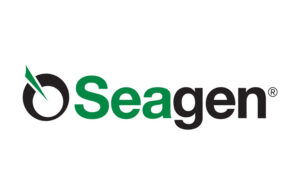 Big Pharma giant Pfizer (NYSE:PFE) is reportedly in talks to acquire Seagen (Nasdaq:SGEN).
Big Pharma giant Pfizer (NYSE:PFE) is reportedly in talks to acquire Seagen (Nasdaq:SGEN).
Founded in 1998, Seagen — formerly known as Seattle Genetics — helped pioneer a cancer therapy known as antibody drug conjugates that work like a guided missile attacking tumors with toxic agents.
Last year, Segan installed David Epstein as its CEO after its co-founder and former leader Clay Siegall resigned after an arrest.
In 2022, Seagen raked in almost $2 billion in revenue, which equated to an almost a quarter increase over the prior year.
Seagen has a market value of some $30 billion. An acquisition would likely command a premium over that figure, according to The Wall Street Journal.
Pfizer isn’t the first company with recent plans to acquire Seagen. In 2022, executives at Seagen were considering talks with Merck & Co. (NYSE:MRK) over a proposed $40 billion acquisition deal. Those talks, however, fell apart.
Seagen’s bread-and-butter, antibody-drug conjugates, have demonstrated promise in treating a variety of cancers, including Hodgkin’s and other lymphomas. In recent years, Segan has established the efficacy of combining antibody-drug conjugate therapies with immunotherapy to treat other tumor types. Examples include advanced unresectable or metastatic HER2-positive breast cancer.
If the acquisition proceeds, it could bolster Pfizer’s standing in oncology.
In its most recent earnings announcement, Pfizer noted that it had multiple new oncology product candidates in its pipeline, including ARV-471 and a CDK4 inhibitor for endocrine receptor-positive breast cancer.
The competitive landscape in drug development for oncology is intense. In recent decades, an array of pharma and biotech companies have ramped up their investment in oncology R&D.
The Biden administration has hinted that it plans to be more forceful in future antitrust review.
The “antitrust hurdle appears surmountable,” however, Berenberg Capital Markets explained in a briefing note to investors.
Still, an acquisition could help Pfizer deal with a loss of momentum related to flagging demand for COVID-19 products. The company also projects that it could lose $17 billion in revenue by 2030 as a result of patent expirations.